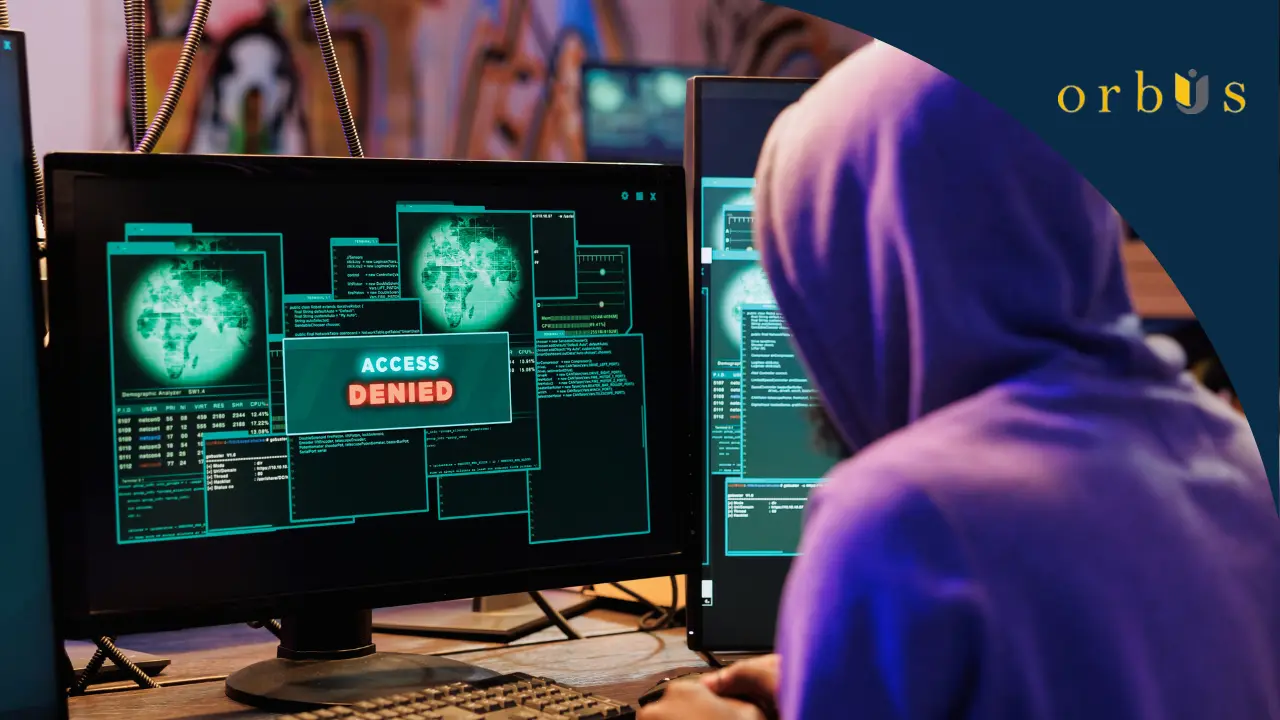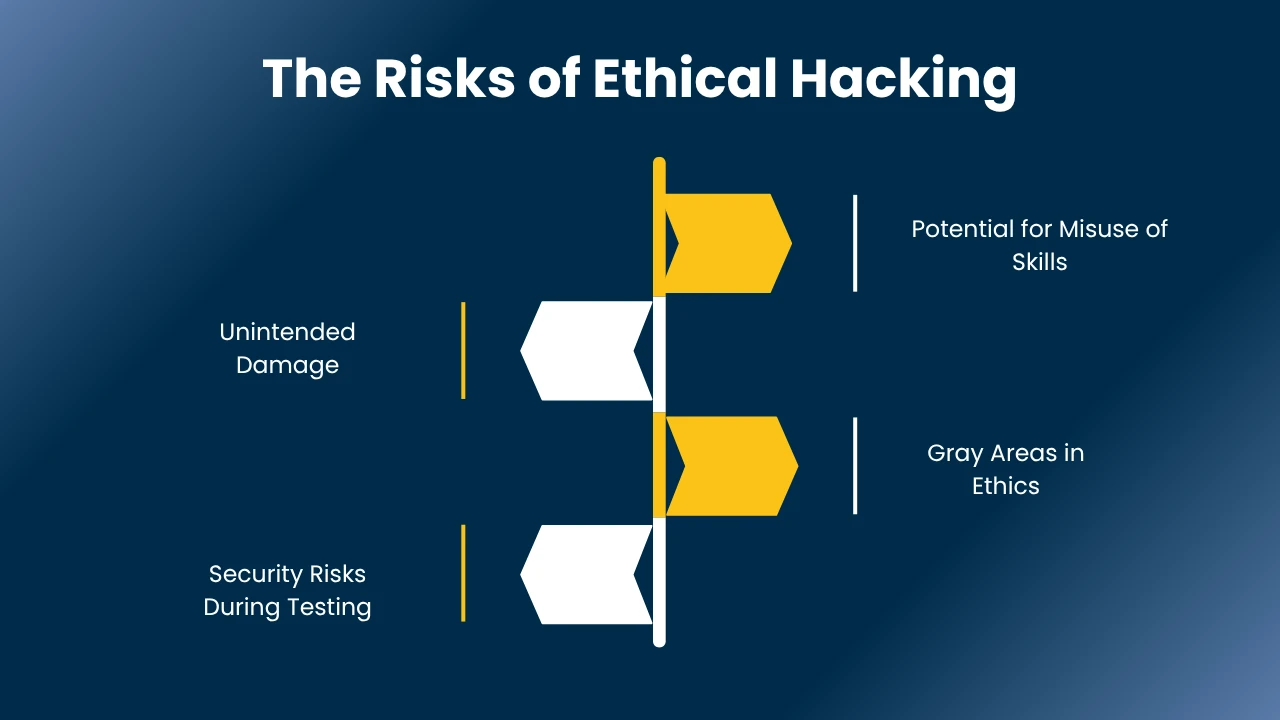Ethical Hacking: A Double-Edged Sword

What is Ethical Hacking?
Ethical hacking, also referred to as “white-hat hacking,” is the practice of legally breaking into computers and networks to identify potential security vulnerabilities before malicious hackers can exploit them. Ethical hackers work with the consent of the system’s owner, whether that be a company, government agency, or individual, to ensure that their activities are legitimate and aimed at improving cybersecurity. In essence, ethical hackers use the same skills as cybercriminals but for good, not harm. They simulate attacks to discover weak points, assess the strength of security systems, and help organizations patch vulnerabilities before they become serious threats.Level up with our expert-led cybersecurity training
Start your journey with the best online course .
The Rise of Ethical Hacking Careers
The rise in cybercrime has made cybersecurity a booming industry. As organizations become more aware of the dangers posed by hackers, they increasingly turn to ethical hackers for help. This surge in demand has opened the door to exciting career opportunities in ethical hacking. Ethical hacking careers are among the fastest-growing in the cybersecurity field. Ethical hackers play a crucial role in protecting businesses and governments from data breaches, ransomware, and other cyber threats. With cyber-attacks becoming more sophisticated, ethical hackers are in constant demand to help mitigate risks. This demand has led to a corresponding increase in ethical hacking training courses and programs designed to help people develop the skills needed to become ethical hackers. These training courses cover a wide range of topics, including penetration testing, vulnerability assessment, network security, and more. For those looking to break into the field, ethical hacking offers a promising and well-paying career path.How Ethical Hacking helps Secure our Digital World
Ethical hacking provides a crucial defense mechanism against cyber threats. The benefits of ethical hacking are clear:- Identifying and Fixing Vulnerabilities: One of the main roles of an ethical hacker is to find vulnerabilities before malicious hackers do.This proactive approach helps organizations fix weak points in their security systems, preventing data breaches, identity theft, and financial loss.
- Staying One Step Ahead of Cybercriminals: Cybercriminals are constantly evolving, creating new ways to infiltrate systems.Ethical hackers help organizations stay one step ahead by continuously testing and improving security measures.This ensures that systems are up-to-date with the latest security protocols and are resilient to emerging threats.
- Compliance with Regulations: Many industries, such as finance, healthcare, and government, are subject to strict regulations concerning data protection and privacy.Ethical hacking helps these organizations comply with these regulations by ensuring their systems meet required security standards.
- Protecting Personal Data and Privacy: In today’s world, our personal data is more valuable than ever. Ethical hackers work to protect this data from being stolen or misused.By identifying vulnerabilities in systems that store personal information, ethical hackers help protect individuals from identity theft, financial fraud, and other forms of cybercrime.
- Boosting Consumer Confidence: Organizations that invest in ethical hacking not only improve their security posture but also build trust with their customers.When customers know that a company takes cybersecurity seriously, they are more likely to do business with that company, knowing their data is in safe hands.
The Ethical Hacking Training Journey
For those looking to enter this exciting field, enrolling in an ethical hacking course for beginners is the first step. These courses are designed to teach individuals the foundational skills required to become an ethical hacker. Topics often covered include:- Understanding networks and systems
- Penetration testing techniques
- Vulnerability analysis
- Social engineering tactics
- Security auditing
- Programming and scripting for hacking
The Risks of Ethical Hacking
Despite the many benefits, ethical hacking comes with its own set of risks and challenges:
- Potential for Misuse of Skills: Ethical hackers are entrusted with powerful tools and knowledge. If these skills fall into the wrong hands, or if an ethical hacker turns rogue, the results could be disastrous.This is why ethical hackers must adhere to strict codes of conduct and operate within legal boundaries.
- Unintended Damage: Even with the best intentions, ethical hacking can sometimes lead to unintended consequences. During testing, a hacker might accidentally disrupt services, cause system failures, or even expose sensitive data.While such incidents are rare, they highlight the need for careful planning and execution of hacking activities.
- Gray Areas in Ethics: Determining what is ethical can sometimes be subjective. There are instances where ethical hackers may push boundaries, accessing parts of a system that were not explicitly authorized.It’s essential to establish clear guidelines and limits before any hacking activity begins to prevent ethical dilemmas.
- Security Risks During Testing: Ethical hackers often simulate real attacks. While this helps organizations identify weaknesses, it also presents a risk.If a hacker’s tools or methods are not properly secured, they could be intercepted by malicious actors and used against the organization. Hence, careful handling of sensitive tools and data is critical.
Level up with our expert-led cybersecurity training
Start your journey with the best online course .
Conclusion
Ethical hacking is a necessary defense against the growing wave of cyber threats. It offers organizations the chance to protect their systems, build trust with customers, and stay compliant with regulations. However, ethical hacking is not without its risks. The potential for misuse, accidental damage, and ethical gray areas means that both hackers and organizations must approach it with care and caution. For those interested in pursuing a career in this exciting field, an ethical hacking course or ethical hacking training course is an excellent starting point. By gaining the right knowledge and skills, individuals can become part of the solution to the ever-evolving challenge of cybersecurity, helping build a safer digital world for all.Understand how Orbus can help your career!
Speak with an Expert Now!
FAQ's
The Rise of Ethical Hacking Careers
The rise in cybercrime has made cybersecurity a booming industry. As organizations become more aware of the dangers posed by hackers, they increasingly turn to ethical hackers for help. This surge in demand has opened the door to exciting career opportunities in ethical hacking. Ethical hacking careers are among the fastest-growing in the cybersecurity field. Ethical hackers play a crucial role in protecting businesses and governments from data breaches, ransomware, and other cyber threats. With cyber-attacks becoming more sophisticated, ethical hackers are in constant demand to help mitigate risks. This demand has led to a corresponding increase in ethical hacking training courses and programs designed to help people develop the skills needed to become ethical hackers. These training courses cover a wide range of topics, including penetration testing, vulnerability assessment, network security, and more. For those looking to break into the field, ethical hacking offers a promising and well-paying career path.
How Ethical Hacking helps Secure our Digital World
- Protecting Personal Data and Privacy: In today’s world, our personal data is more valuable than ever. Ethical hackers work to protect this data from being stolen or misused.By identifying vulnerabilities in systems that store personal information, ethical hackers help protect individuals from identity theft, financial fraud, and other forms of cybercrime.
The Ethical Hacking Training Journey
For those looking to enter this exciting field, enrolling in an ethical hacking course for beginners is the first step. These courses are designed to teach individuals the foundational skills required to become an ethical hacker. Topics often covered include:


